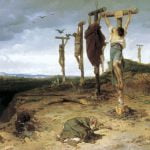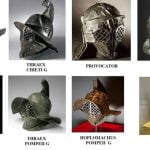A knife is one of the oldest tools known to man. The invention of the Palaeolithic era helped to survive and later facilitated the life of the human species in conditions of settled existence. What about folding knives? Folders and pocket knives are used today, inter alia, in gardening, rescue, military, and tourism… The exchange could be long.
It may come as a surprise to some that folding knives were already known in ancient Rome. Most of these knives were mainly made of iron or bronze, which did not allow the tool to stay sharp for a long time. Roman folding knives therefore often had to be sharpened with intensive use. Folding knives from Imperium Romanum usually did not have a lock, or they were so-called friction folding knives, i.e. knives in which a finger is used as a lock, let’s call it a flap that opens the knife. The handles were usually made of bronze, but I also found those made of bone or stone. As is the case with personal items, Roman folding knives were sometimes very decorative. I present three sample knives. Starting from the left:
- Knife sold at auction in Great Britain, dated to 2nd-4th century CE. Bronze eagle hilt, iron blade.
- Knife found in the territory of the Vaucluse department, France, dated to the 1st-2nd century CE. Currently in the collection of the British Museum in London. Panther-shaped bronze handle, iron blade.
- Knife found in Zülpich, on German territory, dated to the 3rd century CE. It was located inside the Roman sarcophagus discovered there. A stone handle in the shape of a man (presumably representing Heracles), an iron blade with a sickle-shaped shape (today mainly assembly and garden knives have a similar shape).






